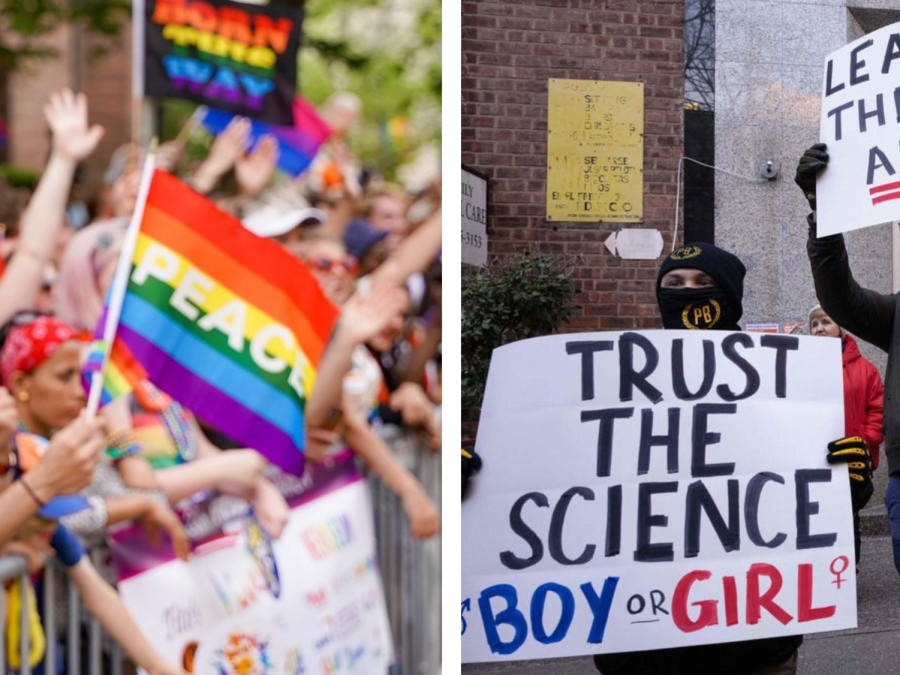LGBTQ+ Discrimination in State Legislatures
April 27, 2023
Throughout history, gay, lesbian, and transgender individuals have faced political and social discrimination from straight, cis-gendered individuals. This discrimination has resulted in the restriction and erasure of not only their rights but, in many cases, their existence itself. Now, many anti-LGBTQ+ activists are calling for the banning of “transgenderism,” some with more clear rhetoric than others.
In March, the Tennessee House of Representatives passed a bill that could allow county clerks to deny marriage licenses for same-sex, interracial, or interreligious couples. In Iowa, Republicans introduced a bill that would define marriage as explicitly between “a man and a woman.”
In Florida, we see attacks targeted specifically at transgender people, with transgender youth at the forefront. Florida’s “Treatments for Sex Reassignment” bill would inflict criminal penalties on healthcare providers who administer gender-affirming care for minors and would grant the courts “temporary emergency jurisdiction” over minors whose parents allow them gender-affirming care. This would allow for the courts to take physical custody of these youth for the sole reason that their parents supported them in being transgender. An accompanying bill, titled “Gender Clinical Interventions,” would allow state courts to prevent a person’s sex from being changed on their birth certificate, a change that would be necessary for many government agencies to recognize a person as their identified gender.
The American Civil Liberties Union (ACLU) has a map of the U.S. marking each of the bills and laws that have been introduced across the country. The state with by far the most anti-LGBTQ legislation is Texas, with fifty-two bills currently in the state’s House and Senate. Among their many proposals are preventing minors from using bathrooms and changing rooms not suited to their assigned sex at birth, restricting schools from teaching about gender and sexuality (much akin to Florida’s “Don’t Say Gay” bill), and requiring certain documents and government-issued IDs to use a person’s assigned sex at birth rather than their self-identified gender.
Even here, we have seen a bill enter the California legislature that would force teachers, counselors, and other school staff to inform parents if their students have started identifying as a gender that differs from their assigned sex at birth. This bill, while not as damaging as others we have seen, could cause widespread fear and anxiety among youth in our state and would damage the trust they have with their school officials.
Texas, Indiana, and many other states have filed similar bills to California’s gender notification bill in the past, and it is becoming increasingly common among states to introduce at least one LGBTQ-restrictive bill to their legislature. Those identifying as LGBTQ+, and especially minors and adults identifying as transgender, will have to keep a close eye on their state legislatures and the country as a whole in the coming years. On the aforementioned map of anti-LGBTQ+ bills, only six of our fifty states have not introduced a single one, and most states that have introduced at least one have not stopped there.
Our world is rapidly changing, and as quickly as things can get better, they can take a turn for the worse. In light of this, the ACLU’s map includes not only the bills passed in each state that restrict LGBTQ+ rights, but also ways that you can stand up to the governments in each state and make your voice heard. Stay true to yourself, stay true to your beliefs, and most importantly, stay safe.



